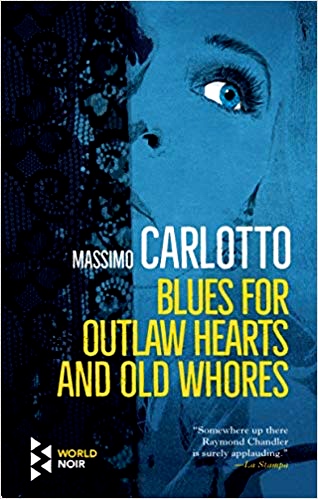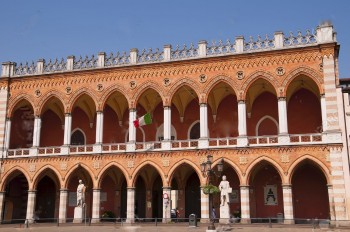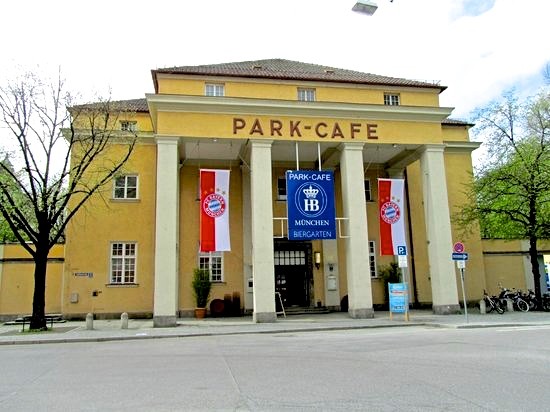“From what we hear, you guys are a couple cards short of a deck…You’re a failed singer, your friend in the hall is a retired smuggler, and the one waiting in the car is an obese terrorist…You’re non-entities. But sometimes losers come to know things of interest. That’s the only reason I accepted your invitation [to talk]. No way are we going to work together….You tell me where I can find Tobias’s murderer, I kill him, and with him dead, you avoid jail.” —Paz Anaya Vega, to the Alligator, Marco Buratti.
 In his darkest and most “noir” novel yet, Massimo Carlotto continues his “Alligator” series, featuring Marco Buratti, a man haunted by the evil which consumes the society in which he tries to live.
In his darkest and most “noir” novel yet, Massimo Carlotto continues his “Alligator” series, featuring Marco Buratti, a man haunted by the evil which consumes the society in which he tries to live.
In touch with members of organized crime and its violence throughout Europe, he also understands crime on a local scale among the people he knows in his home of Padua, Italy. The local police department knows Buratti well for many reasons, and they sometimes ask him for help on their most challenging cases – some of which feature crimes within their own department and the implication that their request for help is something he must not refuse. Padua’s location a few miles west of Venice exposes them to international crime coming from the east, including Russia and Armenia, but also from Europe, and as far away as Spain, as the drug culture, and the theft and violence it spawns, affects everyday modern life, at least within the subculture in which Buratti lives. As the depiction of criminal life in Padua and throughout Europe develops, it feels completely real, even with all its changes of focus and location.
Author Carlotto’s attitudes toward law and crime are, in fact, the product of his own very real experience. In 1976, when he was nineteen, he responded to cries for help from a woman stabbed over fifty times. Covered with blood from trying to save her, he was later arrested for her murder, his case becoming one of the longest cases ever tried in Italy. Lasting eighteen years, and involving eighty-six different judges, his case was tried and retried eleven times, and it was not until eleven years after all that, that he was finally pardoned in 2004 – twenty-eight years after the crime. Carlotto has known the “justice” system firsthand, and he knows it to be a fallible system, to say the least. From his own incarceration and the people he came to know there, he is also familiar with the many different and sometimes competing Mafia groups that operate within the country, each applying its own system of justice to keep the peace. Stating that he has “never made up a murder” in his novels, Carlotto claims to have researched every murder he has written about, to have studied all the autopsy reports, and even to have interviewed those eventually convicted of these crimes. (Source for biographical information here, story by Brian Oliver.)

Often described as “the most beautiful police station in the world,” the Padua station features statues of Dante and Giotto in front. Photo by Brenda Kean.
This novel is the most complex of all Carlotto’s novels so far and has two separate, but overlapping, plot lines and several different settings. It also has two different narrators, in opposition to each other – Buratti (the Alligator) at the beginning of the novel for two chapters, and then Giorgio Pellegrini, a person who will stop at nothing, including murder, beginning in Chapter Three and appearing in alternate chapters thereafter. As the novel opens, Buratti and his two buddies, Beniamino Rossini and Max the Memory, an obese man who loves to cook, have been living in Bern, Switzerland, for a month, hoping to locate where Giorgio Pellegrini is hiding from the police after his wife’s murder. When Buratti gets a tip, for which he and his friends pay handsomely, Marco perks up. He has been extremely lonely – even depressed, recently – in need of a woman to love, and looking forward to being present at the death of Pellegrini, an event which almost came true, not long ago, at the hands of his partner Rossini. A few days later, Buratti and friends are back in Padua, dealing with the Padua police, especially Dottoressa Angela Marino, a high official, who wants to get Buratti to help her clear Pellegrini, who is a friend of hers. She plans to blackmail Buratti with a bogus drug crime to get Buratti’s co-operation. In the process of investigating, Buratti discovers that a woman from Spain named Paz Anaya Vega may have planned the killings of Pellegrini’s wife and friend.
Shifting the point of view to Pellegrini, by now in Munich, the author provides more information about the complex relationships at play here and indicates that Pellegrini has killed three people involved in the drug trade recently. In Munich he meets with Paz Anaya Vega, the Spanish woman who may have arranged the murder of his wife and friend. She is seeking the murderer of her husband, a drug dealer, and some friends and wants his help. In the next chapter, which takes place in Vienna, Buratti returns as narrator, expressing concern about the Russians trying to hack his accounts and surveil him. When Buratti meets Edith, an older prostitute in Vienna, his heart is stirred and he would like to help her, even as he worries about all the intersecting criminal relationships and the violence they inspire. More shooting and deaths keep the action high and the plot increasingly complex. The conclusion leaves open the possibility that the enmity of Buratti and Pellegrini will be further developed in another book in the series.
With over thirty characters, some of them known by aliases, a complex plot which is developed in Padua, Bern, Vienna, and Munich, and two narrators giving conflicting information regarding crimes and responsibility, this is a challenging novel. The violence is fully described and sometimes shocking, and there are no people here who can be considered true heroes. Buratti occasionally gets twinges of conscience regarding deaths he has witnessed, but he is, he says, very aware of “the difference between justice and vengeance.” His own idea of justice “didn’t involve cops and courts,” especially when he and his partners were “playing multiple tables at a time.” Of particular note in this novel is the fact that a number of the women here are particularly loathsome and especially vicious, though no more so than many of the men. While it is laudable that the women are not presented falsely as innocent victims with hearts of gold, the two most prominent women here – Dottoressa Angela Marino and Paz Anaya Vega – are both presented as beautiful, but have no redeeming moral qualities at all. Ultimately, the novel reminded me of an unrefereed football free-for-all, with a great deal of careful plotting and planning by the teams, some wild and unexpected plays, a great many chances taken, much hitting and hurting, and several players lost to the action, before it all ends in a blood-spattered statistical tie.
ALSO by Massimo Carlotto: BANDIT LOVE and FOR ALL THE GOLD IN THE WORLD

Finnish blues singer Ina Forsman, whose CD reminds former singer Buratti how lonely he is in Munich.
Photos. The author’s photo appears on https://www.zimbio.com/
The Padua Police Station has been described as “the most beautiful police station in the world.” Photo by Brenda Kean. https://www.123rf.com/
The Park Cafe, Munich, where Pellegrini meets with Angela Marino to plan future steps. https://www.groupon.de
St. Michael’s Church, Munich, where Pellegrini evaded a “tail.” https://en.wikipedia.org
Finnish blues singer Ina Forsman, whose CD reminds former singer Buratti how lonely he is in Munich. https://www.bluesfeeling.com/



